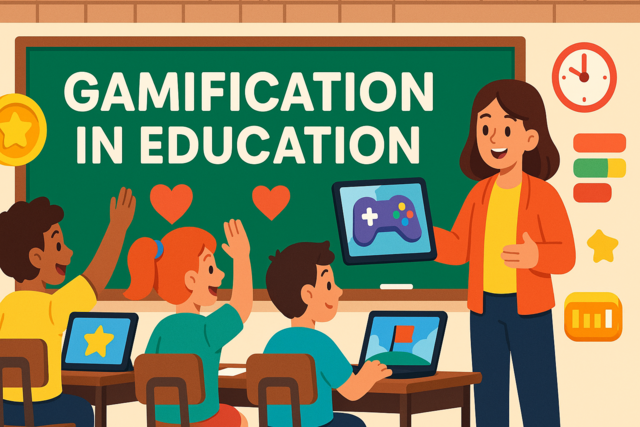Online Class: Leadership Skills for Instructional Coaches

no certificate
with CEU Certificate*
-
15Lessons
-
22Exams &
Assignments -
6Hours
average time -
0.6CEUs
Course Description
Imagine a school filled with passionate educators striving for excellence, yet hindered by the chaotic tides of educational reform and constant change. Now, envision yourself stepping into this scenario as a beacon of leadership, embodying the vital role of an instructional coach who empowers, inspires, and transforms teaching communities for the better. Welcome to "Leadership Skills for Instructional Coaches," a course designed not just to develop your skills but to truly transform the way you view educational leadership and its impact.
Embarking on this journey, you'll dive deep into the heart of instructional coaching, discovering the pivotal ways in which your role can revolutionize teaching and learning. From the onset, you'll harness the power of data-driven decision-making to create targeted interventions, ensuring you're armed with the tools to address the unique learning gaps of every student. This isn't just about numbers and trends—it's about equipping you with the critical, analytical mindset necessary to inspire quantifiable educational success.
As you develop into an extraordinary instructional coach, nurturing a culture of trust and innovation becomes second nature. You'll learn how to cultivate an environment where teachers feel empowered to explore novel methodologies, united by shared objectives and a commitment to professional excellence—because trust isn't just foundational; it's transformational.
Empathy and understanding are cornerstones of this journey, encouraging you to deeply connect with educators. You'll master the art of active listening, integrating it seamlessly into your leadership style, and providing emotional support that elevates teaching practices and invigorates the school's ethos. With these skills, you'll foster an enhanced school culture right from the heart of the classroom, ensuring educators and students alike feel seen, heard, and valued.
Reflective practice will become your ally in championing continuous improvement, guiding you to lead educational communities with insight and courage. Through structured feedback and collective introspection, you'll nurture a culture that thrives on inquiry and adaptability—qualities that are not only invaluable in today's ever-evolving educational landscape but essential.
In your role, navigating change is inevitable, yet you'll do so with grace and determination, leveraging technology to foster inclusive learning environments. You'll be able to integrate strategic goal-setting into your coaching, propelling institutions toward progress and enriched educational outcomes. This course will arm you with the mindset and methodologies necessary to be a forceful leader in modern education.
And throughout, emotional intelligence will form the bedrock of your leadership style. By becoming acutely aware of emotions and deftly navigating interpersonal dynamics, you'll cultivate environments where empathy and social skills are paramount, ensuring collaborative success and educational fulfillment.
Conflicts will transform from disruptive forces into opportunities for growth, as you learn the art of mediation and collaboration. By navigating diverse personalities and bridging ideological differences, you'll foster a harmonious working environment where teaching innovations can flourish.
Tech-savvy and data-literate, you will delve into the realms of educational technology and cultural inclusion, using these tools to not only enhance learning outcomes but strengthen community bonds. Through cultural intelligence training and strategic delegation, you'll inspire educators to unlock their fullest potential, promoting a dynamic and inclusive academic atmosphere.
This journey concludes with a focus on adult learning principles and the power of mentorship—your opportunity to create impactful professional development experiences that resonate with adult learners' intrinsic motivations and real-world challenges. By nurturing robust educational networks, you'll anchor educators in resilience and adaptability, leaving a legacy of empowered, self-reliant leaders.
This is not just a course; it's a transformative experience—one that will redefine your educational career and set you on a path to becoming an indispensable leader. "Leadership Skills for Instructional Coaches" is an opportunity to turn your calling into a catalytic force, making a tangible impact on schools and communities everywhere. Are you ready to change the face of education and craft a legacy that inspires generations? Enroll today and embark on your journey toward transformative leadership.
- Completely Online
- Self-Paced
- 6 Months to Complete
- 24/7 Availability
- Start Anytime
- PC & Mac Compatible
- Android & iOS Friendly
- Accredited CEUs

Course Lessons
Lesson 1. Empowering Educators: How Instructional Coaches Enhance Teaching and Learning
The effectiveness of instructional coaching is amplified through data-driven decision-making, where coaches analyze student performance to inform instructional practices. By utilizing quantitative and qualitative data, they guide educators in interpreting trends and implementing targeted interventions to address learning gaps.Lesson 2. Nurturing a Culture of Trust and Innovation
Understanding trust as the cornerstone of successful educational environments, instructional coaches galvanize teaching communities toward shared objectives and professional excellence. This trust, cultivated through transparency and adept communication, empowers educators to explore new methodologies confidently.Lesson 3. Cultivating Empathy and Understanding in Coaching
Leadership in educational settings benefits from active listening and empathy, key skills that instructional coaches use to support teachers effectively. By understanding educators' emotional landscapes and providing tailored support, coaches elevate both teaching practices and school culture.Lesson 4. Reflective Practice: Insights and Growth
Instructional coaches leverage reflective practice to model effective leadership, inspiring educational communities to prioritize ongoing improvement and excellence. This transformative journey, aided by structured approaches and collaborative feedback, nurtures a thriving culture of inquiry and adaptability.Lesson 5. Navigating Change: Empowering Instructional Coaches in Modern Education
As change agents within the educational sector, instructional coaches leverage technology and foster diverse and inclusive learning environments, embracing a commitment to mental wellness. Through strategic goal-setting and visionary leadership, they lay the foundation for institutional progress and enriched educational outcomes.Lesson 6. Emotional Intelligence: The Cornerstone of Leadership in Education
Through emotional intelligence, instructional coaches enhance educational communities by being aware of emotions, regulating responses, and motivating others. This creates an environment where empathy and social skills drive collaboration, ensuring holistic educational success.Lesson 7. Harnessing Conflict for Collaborative Success in Learning Environments
Conflicts in educational settings offer rich insights into human interactions, with instructional coaches playing a pivotal role in transforming disputes into growth opportunities. By mediating between diverse personalities and ideological differences, coaches can foster a collaborative atmosphere that enhances teaching and learning environments.Lesson 8. Educational Data Literacy: A Modern Imperative
Instructional coaches enhance teaching and improve student outcomes by effectively interpreting a comprehensive set of educational data. This capability enables them to collaborate with educators to create targeted interventions, policies, and learning strategies.Lesson 9. Harnessing Neuroplasticity for Professional Development
Growth mindset principles enable instructional coaches to reshape assessment and feedback strategies, focusing on effort and improvement over innate ability. Through collaborative and timely feedback, coaches help educators and students appreciate their learning processes and motivate them to pursue new challenges.Lesson 10. Leading with LMS: Innovative Approaches in Instructional Coaching
Instructional coaches leverage LMS platforms to guide educators in maximizing features like adaptive assessments and real-time feedback, empowering students to actively shape their learning experience. By embracing collaborative elements, such as discussion forums and peer reviews, coaches foster communication and critical thinking among students and teachers.Lesson 11. Harnessing Technology for Cultural Inclusion
Instructional coaches empower educators to unlock students' potential by developing cultural intelligence and incorporating culturally relevant examples into teaching. Community partnerships and cultural events further enrich the school experience, strengthening bonds and fostering inclusivity.Lesson 12. Empowering Teachers Through Strategic Delegation
By prioritizing self-care and modeling stress management, instructional coaches balance multiple responsibilities and inspire educators to do the same. This approach fosters a healthier learning environment, enhancing engagement and promoting academic success.Lesson 13. Crafting Impactful PD with Adult Learning Insights
Andragogy emphasizes adult learners' need for self-direction and immediate applicability of knowledge. Instructional coaches can craft workshops that use real-world scenarios, encouraging teachers to solve problems specific to their teaching contexts, thus aligning with adult learners' intrinsic motivations.Lesson 14. Fueling Growth: The Role of Instructional Coaches in Change Dynamics
Collaboration and professional growth stand at the core of navigating educational change, with instructional coaches cultivating cohesive teacher networks. By integrating diverse learning experiences and promoting emotional intelligence, they anchor educators in resilience and adaptability.Lesson 15. Mentorship: A Pillar of Educational Evolution
Digital tools are vital in modern mentorship, facilitating seamless communication and collaboration despite geographical distances. By creating psychologically safe environments, mentors enable mentees to express ideas freely, leading to enriched educational experiences.
Learning Outcomes
- Demonstrate the ability to foster collaborative relationships with teachers to support the implementation of effective instructional strategies.
- Identify and analyze data trends to drive instructional improvements and enhance student outcomes.
- Demonstrate effective communication techniques, including active listening and cultural sensitivity, to cultivate trust and enhance collaboration within educational environments.
- Recognize the role of integrity in fostering trust among educational professionals by aligning actions with words and addressing teachers' concerns with empathy.
- Exhibit empathy during coaching sessions by recognizing and validating teachers' emotional experiences, ensuring a supportive feedback environment.
- Demonstrate active listening skills by accurately restating a colleague's teaching concerns and offering targeted support strategies.
- Demonstrate the use of reflective dialogue techniques in instructional coaching to facilitate educators' ability to identify and implement innovative teaching strategies.
- Identify key principles of reflective practice, such as critical thinking and continuous improvement, and explain their impact on instructional coaching effectiveness.
- Demonstrate the ability to integrate educational technology tools, such as learning management systems and educational apps, to personalize and enhance learning experiences for diverse learners.
- Identify strategies to create an inclusive classroom environment that embraces diverse cultures and supports equity, ensuring all students feel respected and valued.
- Demonstrate the ability to apply self-awareness and self-regulation strategies to improve personal coaching approaches, thereby enhancing outcomes in instructional relationships and team dynamics.
- Identify and describe the five core components of emotional intelligence (self-awareness, self-regulation, motivation, empathy, and social skills) and their application to effective leadership in instructional coaching.
- Demonstrate effective conflict resolution strategies by resolving a hypothetical interpersonal conflict between educators using empathy-based dialogues and open communication.
- Demonstrate mastery of lesson content at levels of 70% or higher.
Additional Course Information

- Document Your Lifelong Learning Achievements
- Earn an Official Certificate Documenting Course Hours and CEUs
- Verify Your Certificate with a Unique Serial Number Online
- View and Share Your Certificate Online or Download/Print as PDF
- Display Your Certificate on Your Resume and Promote Your Achievements Using Social Media

Choose Your Subscription Plan
No Certificate / No CEUs
This course only
| Includes certificate | X |
| Includes CEUs | X |
| Self-paced |

|
| Instructor support |

|
| Time to complete | 6 months |
| No. of courses | 1 course |
Certificate & CEUs
This course only
| Includes certificate |

|
| Includes CEUs |

|
| Self-paced |

|
| Instructor support |

|
| Time to complete | 6 months |
| No. of courses | 1 course |
Certificates & CEUs
Includes all 600+ courses
| Includes certificate |

|
| Includes CEUs |

|
| Self-paced |

|
| Instructor support |

|
| Time to complete | 12 Months |
| No. of courses | 600+ |
Certificates & CEUs
Includes all 600+ courses
| Includes certificate |

|
| Includes CEUs |

|
| Self-paced |

|
| Instructor support |

|
| Time to complete | 24 Months |
| No. of courses | 600+ |
Related Courses
-
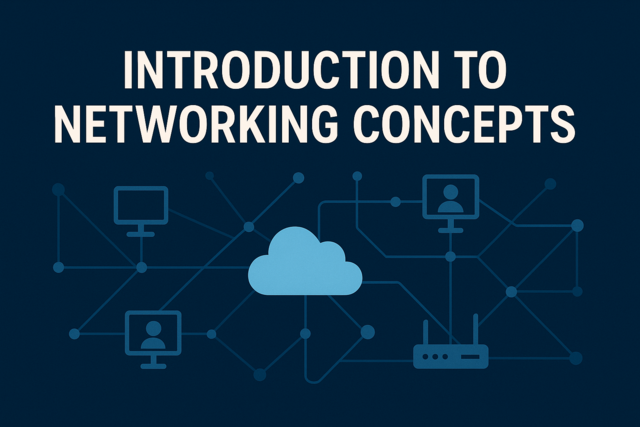 3 hours
0.3 CEUs
Introduction to Networking Concepts
+ More Info
3 hours
0.3 CEUs
Introduction to Networking Concepts
+ More Info
-
 7 hours
0.7 CEUs
The Dynamics of Desire: Understanding Intimacy and Attraction
+ More Info
7 hours
0.7 CEUs
The Dynamics of Desire: Understanding Intimacy and Attraction
+ More Info
-
 6 hours
0.6 CEUs
Data-Driven Decision Making in Special Education
+ More Info
6 hours
0.6 CEUs
Data-Driven Decision Making in Special Education
+ More Info
-
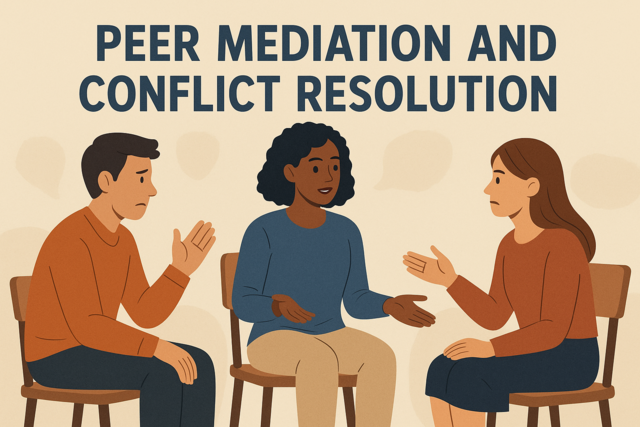 6 hours
0.6 CEUs
Peer Mediation and Conflict Resolution
+ More Info
6 hours
0.6 CEUs
Peer Mediation and Conflict Resolution
+ More Info
-
 6 hours
0.6 CEUs
Ethical Decision-Making in Business
+ More Info
6 hours
0.6 CEUs
Ethical Decision-Making in Business
+ More Info
-
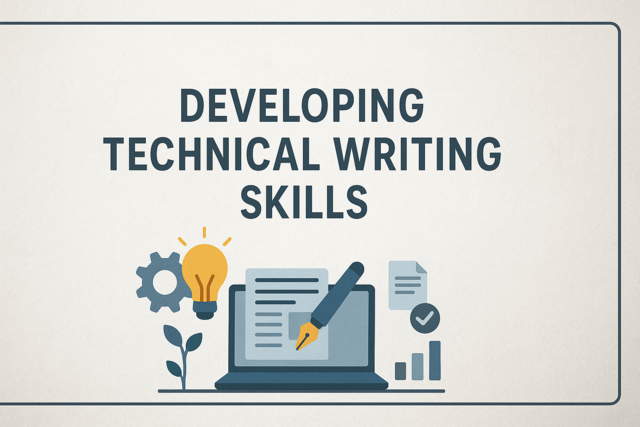 3 hours
0.3 CEUs
Developing Technical Writing Skills
+ More Info
3 hours
0.3 CEUs
Developing Technical Writing Skills
+ More Info
-
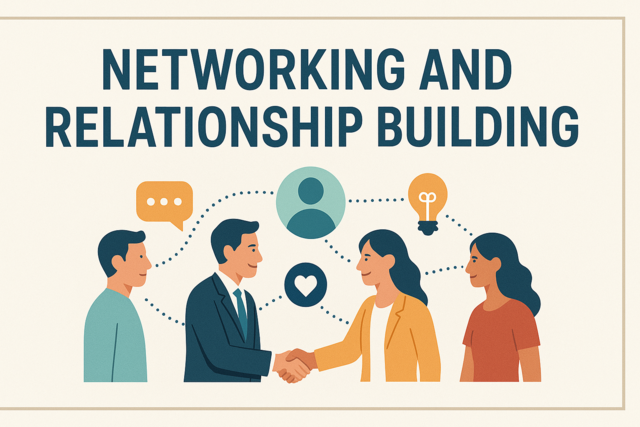 3 hours
0.3 CEUs
Networking and Relationship Building
+ More Info
3 hours
0.3 CEUs
Networking and Relationship Building
+ More Info
-
 6 hours
0.6 CEUs
Mysteries of Druidic Lore and Alchemical Practices
+ More Info
6 hours
0.6 CEUs
Mysteries of Druidic Lore and Alchemical Practices
+ More Info
-
 7 hours
0.7 CEUs
Advanced PowerPoint Presentation Skills
+ More Info
7 hours
0.7 CEUs
Advanced PowerPoint Presentation Skills
+ More Info
-
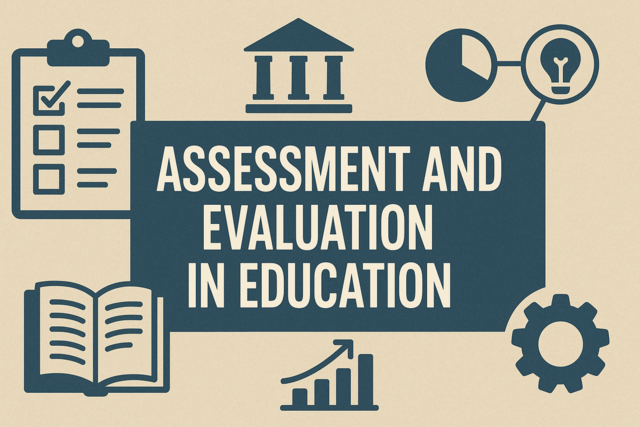 6 hours
0.6 CEUs
Assessment and Evaluation in Education
+ More Info
6 hours
0.6 CEUs
Assessment and Evaluation in Education
+ More Info
-
 5 hours
0.5 CEUs
Understanding Social Media for Business
+ More Info
5 hours
0.5 CEUs
Understanding Social Media for Business
+ More Info
-
 3 hours
0.3 CEUs
The Empathy Effect: Enhancing Communication with Loved Ones
+ More Info
3 hours
0.3 CEUs
The Empathy Effect: Enhancing Communication with Loved Ones
+ More Info
-
 5 hours
0.5 CEUs
Mindful Parenting: Cultivating Patience and Presence
+ More Info
5 hours
0.5 CEUs
Mindful Parenting: Cultivating Patience and Presence
+ More Info
-
 6 hours
0.6 CEUs
Basic Gardening and Plant Care
+ More Info
6 hours
0.6 CEUs
Basic Gardening and Plant Care
+ More Info
-
 6 hours
0.6 CEUs
Culturally Responsive Teaching in Special Education
+ More Info
6 hours
0.6 CEUs
Culturally Responsive Teaching in Special Education
+ More Info
-
 7 hours
0.7 CEUs
Basics of Entrepreneurship
+ More Info
7 hours
0.7 CEUs
Basics of Entrepreneurship
+ More Info
-
 4 hours
0.4 CEUs
Time Management Mastery
+ More Info
4 hours
0.4 CEUs
Time Management Mastery
+ More Info
-
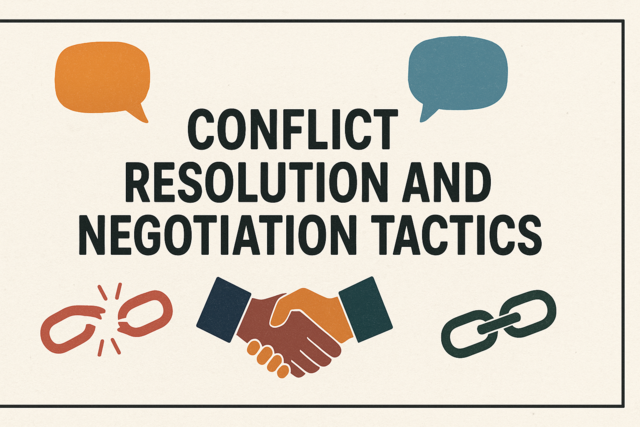 7 hours
0.7 CEUs
Conflict Resolution and Negotiation Tactics
+ More Info
7 hours
0.7 CEUs
Conflict Resolution and Negotiation Tactics
+ More Info
-
 4 hours
0.4 CEUs
Design Dynamics: The Rise of Contemporary Luxury Designers
+ More Info
4 hours
0.4 CEUs
Design Dynamics: The Rise of Contemporary Luxury Designers
+ More Info
-
 6 hours
0.6 CEUs
Digital Marketing Fundamentals
+ More Info
6 hours
0.6 CEUs
Digital Marketing Fundamentals
+ More Info
-
 3 hours
0.3 CEUs
Team Building and Collaboration
+ More Info
3 hours
0.3 CEUs
Team Building and Collaboration
+ More Info
-
 3 hours
0.3 CEUs
Bermuda Triangle Mysteries
+ More Info
3 hours
0.3 CEUs
Bermuda Triangle Mysteries
+ More Info
-
 3 hours
0.3 CEUs
Luxury Layering: The Art of Dressing with Opulence
+ More Info
3 hours
0.3 CEUs
Luxury Layering: The Art of Dressing with Opulence
+ More Info
-
 5 hours
0.5 CEUs
Conflict Resolution: Turning Turmoil into Triumph
+ More Info
5 hours
0.5 CEUs
Conflict Resolution: Turning Turmoil into Triumph
+ More Info
-
 4 hours
0.4 CEUs
Preparing for a Career Change
+ More Info
4 hours
0.4 CEUs
Preparing for a Career Change
+ More Info
-
 4 hours
0.4 CEUs
The Giving Relationship: Balancing Support and Independence
+ More Info
4 hours
0.4 CEUs
The Giving Relationship: Balancing Support and Independence
+ More Info
-
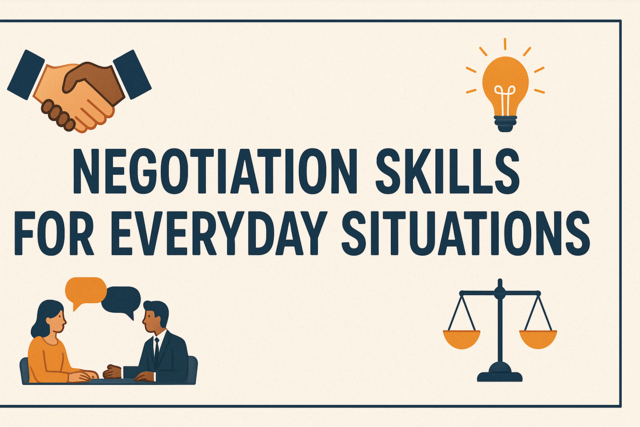 3 hours
0.3 CEUs
Negotiation Skills for Everyday Situations
+ More Info
3 hours
0.3 CEUs
Negotiation Skills for Everyday Situations
+ More Info
-
 7 hours
0.7 CEUs
Volunteering and Philanthropy Skills
+ More Info
7 hours
0.7 CEUs
Volunteering and Philanthropy Skills
+ More Info
-
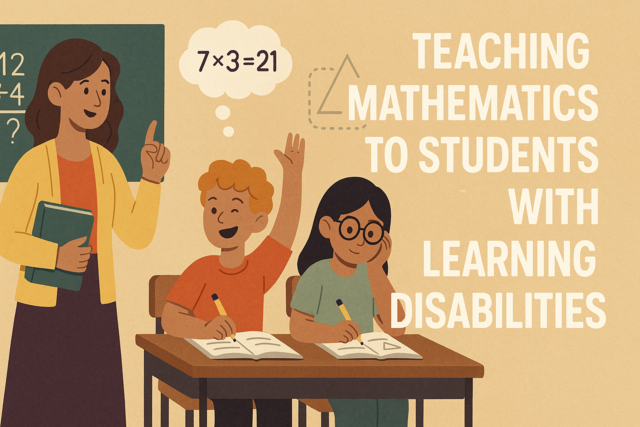 5 hours
0.5 CEUs
Teaching Mathematics to Students with Learning Disabilities
+ More Info
5 hours
0.5 CEUs
Teaching Mathematics to Students with Learning Disabilities
+ More Info
-
 5 hours
0.5 CEUs
The Enigmatic Dimensions of Time
+ More Info
5 hours
0.5 CEUs
The Enigmatic Dimensions of Time
+ More Info
-
 3 hours
0.3 CEUs
Holistic Approaches to Education
+ More Info
3 hours
0.3 CEUs
Holistic Approaches to Education
+ More Info
-
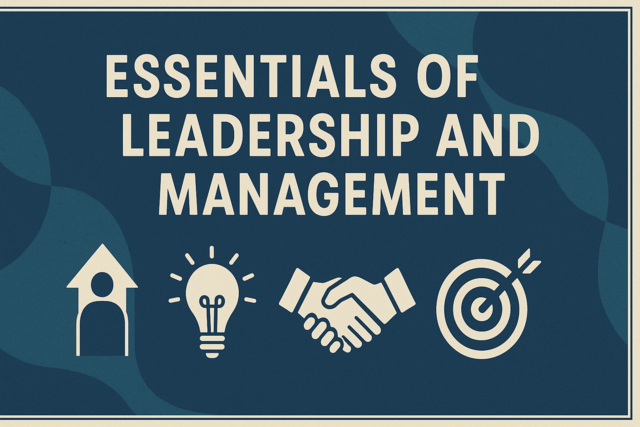 4 hours
0.4 CEUs
Essentials of Leadership and Management
+ More Info
4 hours
0.4 CEUs
Essentials of Leadership and Management
+ More Info
-
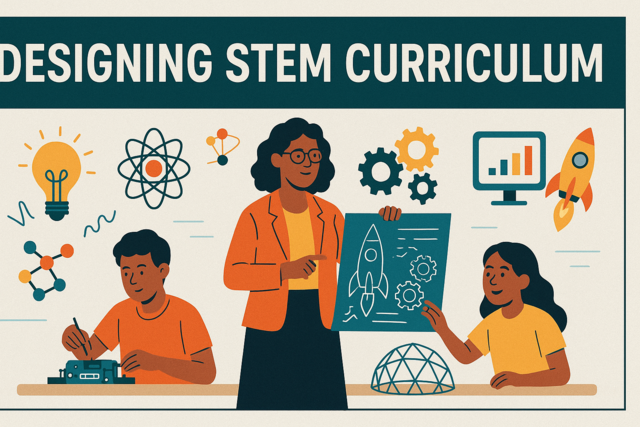 3 hours
0.3 CEUs
Designing STEM Curriculum
+ More Info
3 hours
0.3 CEUs
Designing STEM Curriculum
+ More Info
-
 7 hours
0.7 CEUs
Engaging Empathy in Everyday Situations
+ More Info
7 hours
0.7 CEUs
Engaging Empathy in Everyday Situations
+ More Info
-
 4 hours
0.4 CEUs
Job Interview Skills and Techniques
+ More Info
4 hours
0.4 CEUs
Job Interview Skills and Techniques
+ More Info
-
 3 hours
0.3 CEUs
Budgeting and Financial Planning
+ More Info
3 hours
0.3 CEUs
Budgeting and Financial Planning
+ More Info
-
 6 hours
0.6 CEUs
The Vogue of Now: An Insight into Modern Fashion Trends
+ More Info
6 hours
0.6 CEUs
The Vogue of Now: An Insight into Modern Fashion Trends
+ More Info
-
 5 hours
0.5 CEUs
Building Bridges: Techniques for Intergenerational Understanding
+ More Info
5 hours
0.5 CEUs
Building Bridges: Techniques for Intergenerational Understanding
+ More Info
-
 5 hours
0.5 CEUs
Creating Engaging Online Content
+ More Info
5 hours
0.5 CEUs
Creating Engaging Online Content
+ More Info
-
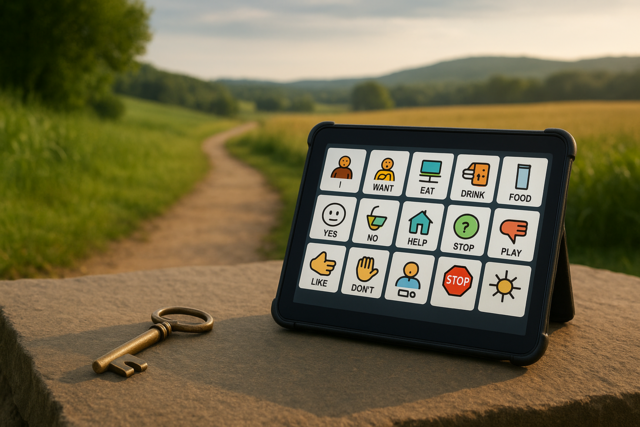 6 hours
0.6 CEUs
Assistive Communication Devices: Maximizing Potential
+ More Info
6 hours
0.6 CEUs
Assistive Communication Devices: Maximizing Potential
+ More Info


